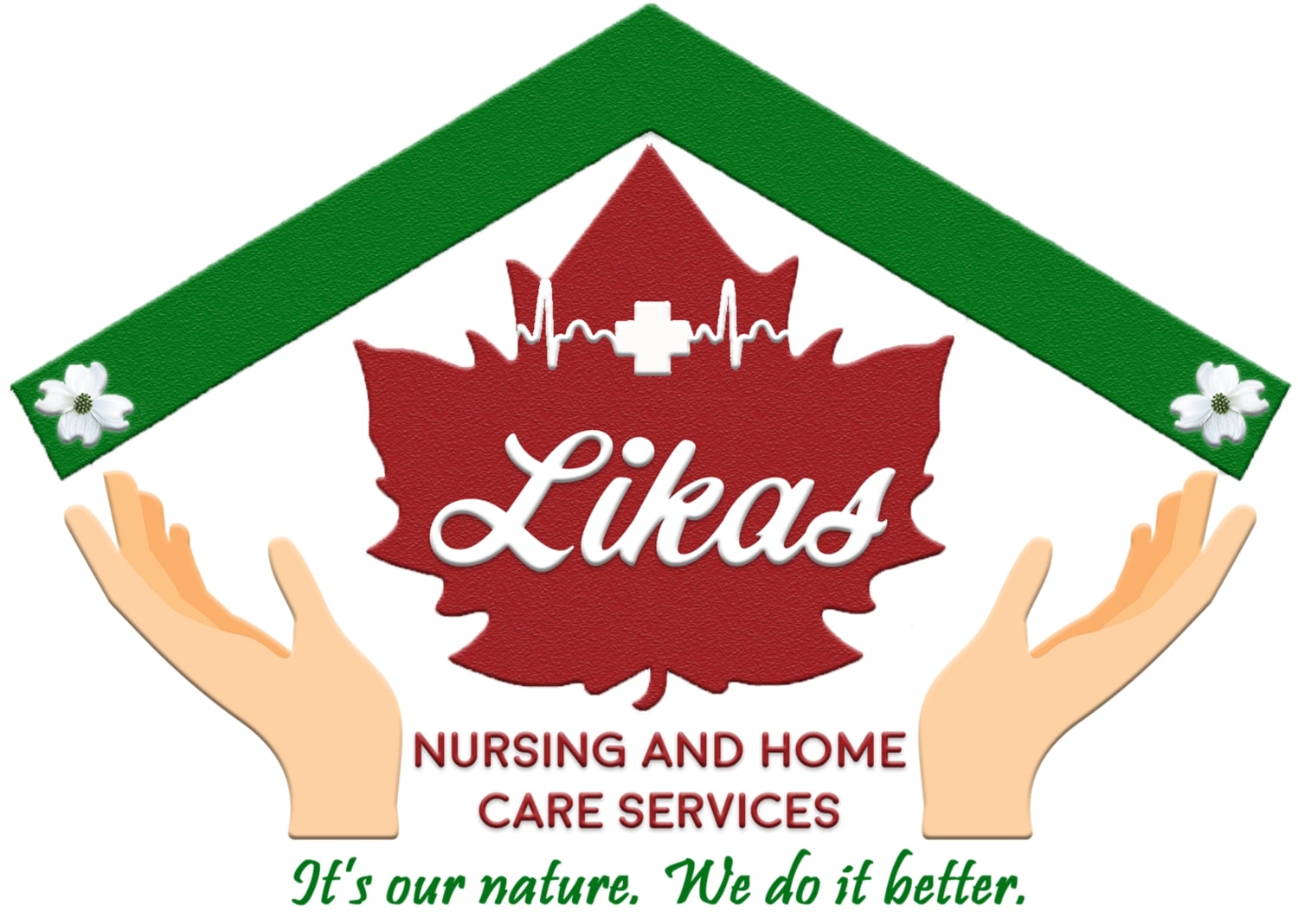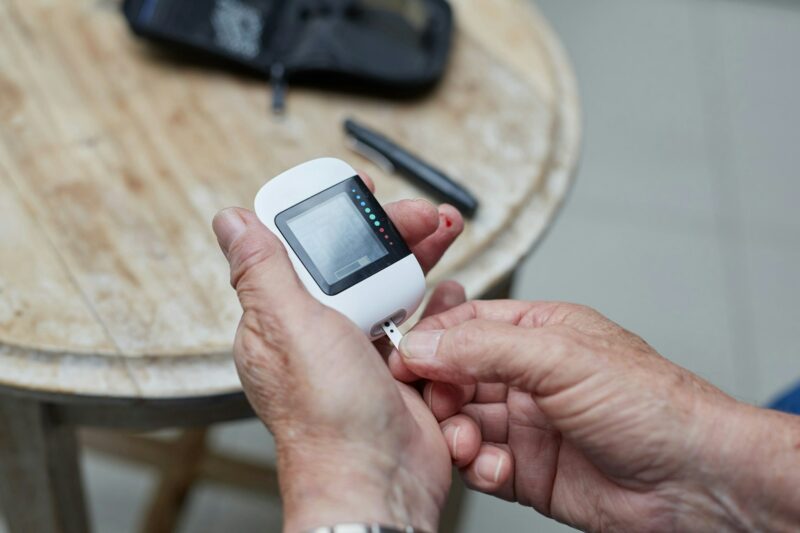
How can we help our elderly loved ones stay healthy and active? Preventing obesity in elderly individuals is crucial for their overall well-being. Simple lifestyle changes can make a big difference. Encouraging regular physical activity, like walking or gardening, keeps them moving. Balanced meals rich in fruits, vegetables, and whole grains are essential to nourish their bodies.
Social support plays a vital role too. Engaging family and friends in meal prep or exercise can boost motivation. Regular health check-ups also help monitor weight and prevent related issues. By focusing on these strategies, we can enhance their quality of life and promote longevity. Let’s dive into effective ways to tackle obesity in the elderly.
Understanding Obesity in the Elderly
Defining Obesity
Obesity is a condition characterized by excess body fat. It is often measured using Body Mass Index (BMI). BMI is calculated by dividing a person’s weight in kilograms by their height in meters squared. For older adults, a BMI of 30 or higher falls into the obesity category. Accurate measurement of BMI is crucial for identifying obese individuals among seniors.
Obesity rates have increased significantly over the past few decades. According to the World Health Organization, nearly 13% of the global adult population was classified as obese in 2021. This trend affects elderly populations, leading to various health challenges.
U-Shaped Relationship
Research shows a U-shaped relationship between BMI and mortality risk in seniors. This means both low and high BMI can increase mortality risks. The optimal BMI range for older adults is typically between 24 and 29. Those within this range tend to have better health outcomes.
Obese adults face higher risks of chronic diseases like diabetes and heart disease. However, being underweight can also lead to health issues such as weakened immune systems and frailty. Thus, maintaining an appropriate weight is essential for elderly health management.
Sarcopenic Obesity
Sarcopenic obesity refers to the combination of obesity and sarcopenia, which is the loss of muscle mass and strength. This condition is particularly concerning for seniors. It can severely impact mobility and overall functional capacity.
Sarcopenic obesity leads to increased excess adiposity while reducing muscle tissue. As a result, it affects balance and increases the risk of falls. Seniors with this condition may struggle with daily activities, making them more dependent on others.
Addressing sarcopenic obesity requires a focus on both weight management and muscle preservation. Regular physical activity, especially strength training, plays a vital role in combating this issue. Nutrition also matters; adequate protein intake helps maintain muscle mass while managing weight.
In summary, understanding obesity in the elderly involves recognizing its definitions and implications. Monitoring BMI provides insights into health risks. The U-shaped relationship highlights the need for balanced weight management strategies. Finally, addressing sarcopenic obesity is crucial for enhancing quality of life among older adults.
Importance of Balanced Nutrition
Nutrient-Dense Diet
Older adults require a nutrient-dense diet to maintain their health. As people age, their bodies need specific nutrients to support overall well-being. This includes vitamins, minerals, and healthy fats. A balanced diet helps in maintaining a healthy weight and supports body composition.
Many older adults may experience a decrease in appetite. They might not consume enough calories or nutrients. It’s essential to encourage meals that are rich in quality ingredients. Foods like fruits, vegetables, whole grains, and lean proteins should be staples in their diets. These foods provide the necessary energy and nutrients without excessive calories.
Role of Protein
Dietary protein plays a crucial role in preserving muscle mass. Older adults often face the risk of sarcopenia, which is the loss of muscle due to aging. Consuming adequate protein can help combat this issue. Lean meats, fish, eggs, beans, and dairy products are excellent sources of protein.
Research shows that a higher intake of protein helps maintain lean body mass. It also supports muscle protein synthesis. Older adults should aim for about 1.0 to 1.2 grams of protein per kilogram of body weight daily. This ensures they get enough protein to support their body’s needs.
Mindful Eating Practices
Mindful eating practices can aid in managing portion sizes and caloric intake effectively. Encouraging older adults to pay attention to their hunger cues is important. This means eating slowly and savoring each bite. Doing so helps them recognize when they are full.
Portion control is vital for preventing obesity. Using smaller plates can create the illusion of a full plate while reducing overall food intake. Planning meals ahead of time can also help manage what goes into each dish. Keeping track of how much they eat can assist in making healthier choices.
Energy Balance
Maintaining an appropriate energy balance is key for elderly individuals. They should focus on intentional energy consumption rather than consuming empty calories. This means choosing foods that provide essential nutrients rather than those high in sugar or unhealthy fats.
Older adults should also stay hydrated. Drinking enough water supports metabolism and overall health. Proper hydration can prevent overeating as thirst is sometimes mistaken for hunger.
Exercise Tips for Seniors
Aerobic Activity
Aerobic activity is essential for seniors. It improves heart health and helps with weight management. Walking, swimming, and cycling are great options. These exercises increase endurance and boost energy levels. Aim for at least 150 minutes of moderate aerobic activity each week. This can be broken down into smaller sessions. Short walks or light swims are effective.
Starting with low-impact activities is crucial. Activities like water aerobics or stationary biking reduce stress on joints. They enhance mobility without a high risk of injury. Consistency in these activities leads to long-term health benefits. Regular aerobic exercise also supports muscle protein synthesis.
Resistance Training
Resistance training is equally important for older adults. It helps build and maintain muscle strength. Strong muscles support daily activities and improve overall quality of life. Seniors should incorporate resistance training at least twice a week. This can include bodyweight exercises or using resistance bands.
Focus on major muscle groups like legs, arms, and core. Simple exercises such as squats, push-ups, and seated rows can be effective. Start with lighter weights to avoid injury. Gradually increase the resistance as strength improves. This approach builds skeletal muscle and reduces the risk of falls.
HIIT Strategies
High-Intensity Interval Training (HIIT) can benefit seniors too. Short bursts of intense activity followed by rest periods improve cardiovascular fitness quickly. Seniors should adapt HIIT to their fitness level. For example, alternate between walking briskly and resting.
This method offers flexibility in workouts while promoting fat loss and muscle gain. Even short sessions of HIIT can lead to significant improvements in fitness levels. However, it’s important to consult a healthcare provider before starting HIIT, especially if there are existing health issues.
Lifestyle Changes
Incorporating physical activity into daily routines is vital. Simple changes like taking the stairs or gardening add more movement to the day. Engaging in social activities that involve movement can also help maintain motivation.
Seniors should aim for a balanced lifestyle that includes both exercise and proper nutrition. A diet rich in protein supports muscle health and aids recovery from workouts. Combining these elements creates a strong foundation for preventing obesity in the elderly.
Role of Hydration in Weight Management
Importance of Water
Hydration plays a crucial role in long-term weight control. Water is essential for many body functions. It helps with metabolism and digestion. Drinking enough water can boost energy levels, making it easier to stay active.
Seniors often forget to drink enough fluids. This can lead to dehydration. Dehydration can slow down metabolism, making weight management harder. Regular water intake supports overall health and helps maintain a healthy weight.
Appetite Regulation
Hydration also influences appetite regulation. Sometimes, the body confuses thirst with hunger. When seniors feel hungry, they might just need water instead of food. Drinking water before meals can reduce overall calorie intake. This simple action can help prevent overeating.
Research shows that drinking water before meals can lead to sustainable weight loss. One study indicated that older adults who drank two cups of water before meals consumed fewer calories during their meals. This habit not only aids in weight management but also promotes healthier eating patterns.
Monitoring Fluid Intake
Seniors should monitor their fluid intake closely. It’s important to drink enough water, especially during hot weather or after physical activity. The body loses more fluids through sweat and heat, increasing the risk of dehydration.
A good guideline is to aim for at least eight 8-ounce glasses of water daily. However, individual needs may vary based on health conditions and activity levels. Keeping a water bottle nearby can serve as a reminder to drink throughout the day.
Practical Tips
Here are some practical tips for maintaining proper hydration:
Carry a reusable water bottle.
Set reminders to drink water regularly.
Include hydrating foods like fruits and vegetables in meals.
Limit caffeine and alcohol, as they can lead to dehydration.
Staying hydrated is essential for seniors aiming to manage their weight effectively. Proper hydration supports metabolism and helps regulate hunger cues. By prioritizing fluid intake, the elderly can take significant steps to prevent obesity.
Utilizing Technology for Health Monitoring
Wearable Devices
Wearable devices play a crucial role in monitoring health. They track physical activity and vital signs. This promotes accountability among elderly individuals. For example, smartwatches can measure heart rate, steps taken, and calories burned. These devices help users set fitness goals. Regular feedback encourages them to stay active.
With wearables, seniors can monitor their daily movements easily. Many devices sync with smartphones, allowing users to see their progress over time. This data can motivate them to maintain a healthy lifestyle. It also helps caregivers understand the physical function of their loved ones.
Meal Planning Apps
Apps for meal planning are essential tools for maintaining healthy eating habits. These applications allow users to plan meals and track calorie intake. They provide tailored recipes based on dietary needs. This feature is especially helpful for seniors managing conditions like diabetes or hypertension.
Users can input their food preferences and restrictions into these apps. The app then generates meal plans that suit their needs. This makes grocery shopping easier and more efficient. By keeping track of what they eat, seniors can make healthier choices.
Consulting Healthcare Professionals
Regular Assessments
Regular health assessments are crucial for elderly individuals. These evaluations help identify obesity-related risks. Health professionals can assess weight, diet, and activity levels. They can also check for associated health concerns like diabetes or heart disease. Research shows that early detection can lead to better management of these conditions.
Healthcare providers often recommend routine check-ups. These visits allow professionals to monitor changes in weight and overall health. They can then suggest interventions tailored to the individual’s needs. This proactive approach helps prevent obesity from worsening and reduces health risks for the elderly.
Collaboration with Experts
Collaboration with dietitians and fitness experts is essential. These professionals provide personalized weight management plans. A registered dietitian can create a balanced meal plan based on an individual’s health status. They consider dietary restrictions and preferences.
Fitness experts can design exercise programs suitable for older adults. They focus on low-impact activities that enhance mobility and strength. Studies show that regular physical activity leads to significant health benefits, including weight loss and improved mental health.
Working together with these experts ensures a comprehensive approach to weight management. It addresses both nutrition and physical activity, which are key factors in preventing obesity for the elderly.
Discussing Medications
Discussing medications with healthcare providers is vital. Some prescriptions may contribute to weight gain in elderly populations. Common examples include certain antidepressants and steroids. Understanding these potential side effects allows for better management.
Patients should openly communicate any concerns about their medications. This dialogue helps healthcare providers adjust prescriptions as necessary. They may suggest alternatives or additional interventions to mitigate weight gain.
Research indicates that managing medication effects is crucial for effective obesity prevention strategies. Addressing this concern can lead to improved outcomes for older adults struggling with weight issues.
Evidence-Based Approaches
Evidence-based approaches are essential in managing obesity in the elderly population. Studies highlight the importance of tailored interventions based on individual needs. Utilizing data from previous research helps inform best practices.
Healthcare professionals rely on evidence to guide treatment plans. They consider various factors, including age, existing health conditions, and lifestyle choices. This method ensures that each patient receives the most effective care possible.
Dietary Considerations for Older Adults
Macronutrient Balance
Older adults need a balanced intake of macronutrients. This means consuming healthy fats, carbohydrates, and proteins. Healthy fats come from sources like avocados, nuts, and olive oil. These fats support heart health and can help with nutrient absorption.
Carbohydrates should mainly come from whole grains, fruits, and vegetables. These foods provide essential vitamins and minerals. They also offer energy needed for daily activities. Proteins are crucial as well. They help maintain muscle mass, which is vital for mobility and overall strength in the elderly population.
Fiber-Rich Foods
Incorporating fiber-rich foods is important for older adults. Foods high in fiber include beans, lentils, whole grains, fruits, and vegetables. Fiber aids digestion and promotes feelings of fullness. This can prevent overeating and support weight management.
A diet rich in fiber also helps regulate blood sugar levels. This is especially beneficial for those at risk of type 2 diabetes. Fiber supports heart health by lowering cholesterol levels.
Sodium Intake Monitoring
Monitoring sodium intake is crucial for older adults. High sodium consumption can lead to increased blood pressure. This poses significant risks to heart health. It’s advisable to limit processed foods that often contain hidden salts.
Instead, fresh foods should be prioritized. Cooking meals at home allows for better control over sodium levels. Using herbs and spices can enhance flavor without adding salt.
Practical Dietary Strategies
Implementing practical dietary strategies can make a difference in healthy aging.
Focus on portion control to avoid excessive calorie intake.
Plan meals ahead to ensure a balanced diet throughout the week.
Stay hydrated by drinking plenty of water daily.
These strategies will support intentional energy intake restriction while ensuring all nutritional needs are met.
Addressing Hormonal Changes
Hormonal Shifts
Aging brings about significant changes in hormone levels. These shifts can affect metabolism and body composition. The body produces less of certain hormones, like testosterone and estrogen, as one ages. This reduction leads to a decrease in muscle mass and an increase in fat storage.
Lower muscle mass means the body burns fewer calories at rest. This change creates a challenge for older adults trying to maintain a healthy weight. Therefore, understanding these hormonal changes is crucial for managing obesity.
Appetite Regulation
Hormonal imbalances also impact appetite. For instance, ghrelin is a hormone that stimulates hunger. As people age, the response to this hormone may weaken. Conversely, leptin, which signals fullness, may not function effectively. This imbalance can lead to increased appetite and weight gain.
Older adults might find it harder to regulate their food intake due to these hormonal shifts. They may eat more than needed or crave unhealthy foods. These patterns contribute to obesity and other health issues.
Professional Guidance
Consulting with healthcare professionals is essential for addressing hormonal issues. Doctors can provide tests to measure hormone levels. Based on the results, they may recommend treatments or lifestyle changes.
Possible treatments include hormone replacement therapy or medications that help balance hormones. Healthcare providers can guide nutrition and exercise plans tailored to individual needs.
Monitoring one’s health regularly can prevent serious complications linked to obesity. Older adults should not hesitate to seek help when needed.
Final Remarks
Preventing obesity in the elderly is vital for enhancing quality of life. You’ve learned about balanced nutrition, exercise tips, and the importance of hydration. Understanding hormonal changes and utilizing technology can empower you to take charge of your health. Consulting healthcare professionals ensures you’re on the right track.
Take action today! Assess your current habits and make small, manageable changes. Engage with your loved ones to build a supportive community around healthy living. Together, you can create a vibrant lifestyle that promotes well-being and longevity. Your journey towards better health starts now—don’t wait!
Frequently Asked Questions
How does obesity affect the elderly?
Obesity can lead to serious health issues in the elderly, including diabetes, heart disease, and mobility problems. It can also decrease overall quality of life and increase the risk of chronic conditions.
What are some effective dietary changes for seniors?
Seniors should focus on a balanced diet rich in fruits, vegetables, whole grains, and lean proteins. Reducing processed foods and sugars can significantly help in weight management.
How much exercise do older adults need?
Older adults should aim for at least 150 minutes of moderate aerobic exercise each week. Activities like walking, swimming, or cycling are great options that promote cardiovascular health.
Why is hydration important for weight management in seniors?
Staying hydrated helps regulate appetite and metabolism. Dehydration can sometimes be mistaken for hunger, leading to unnecessary snacking or overeating.
Can technology assist in preventing obesity in the elderly?
Yes, wearable devices and health apps can track activity levels, monitor food intake, and provide reminders for hydration and exercise. This technology promotes accountability and encourages healthier habits.
When should seniors consult healthcare professionals about weight management?
Seniors should consult healthcare professionals if they struggle with weight loss, experience sudden weight gain, or have underlying health conditions affecting their diet and exercise.
How do hormonal changes impact weight in older adults?
Hormonal changes during aging can slow metabolism and increase fat accumulation. Understanding these changes helps seniors adopt targeted strategies for effective weight management.



